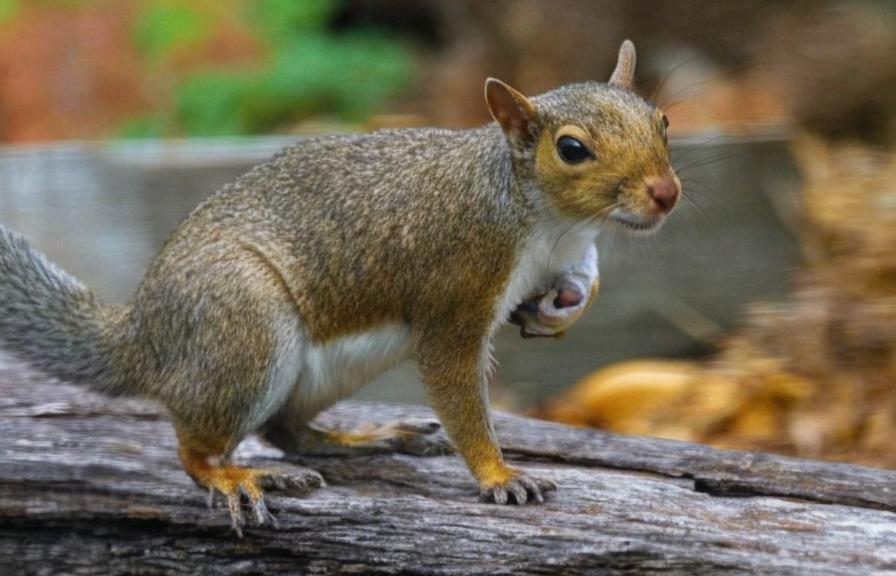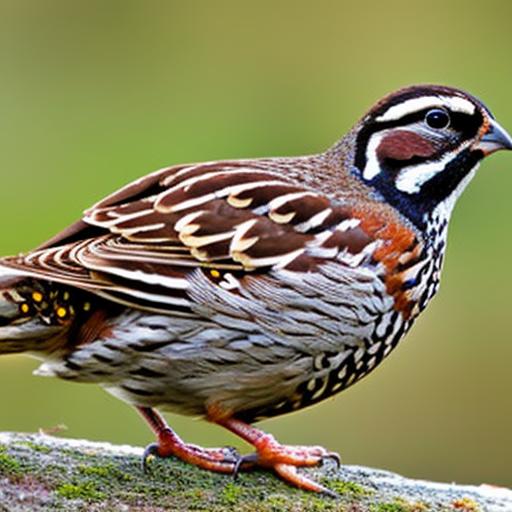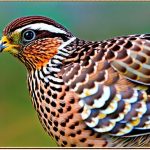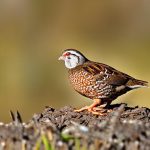When it comes to keeping quail in your backyard, it’s important to understand the regulations and laws that govern this activity. Different regions and countries have varying rules and restrictions when it comes to keeping quail, so it’s crucial to do your research and ensure that you are in compliance with the law. Some areas may require permits or licenses for keeping quail, while others may have specific guidelines for the size and type of enclosure that is required. Additionally, there may be regulations regarding the number of quail that you are allowed to keep, as well as rules about noise and odor control. By familiarizing yourself with the regulations in your area, you can avoid any potential legal issues and ensure that you are providing a safe and suitable environment for your quail.
In some areas, there may be zoning restrictions that dictate whether or not you are allowed to keep quail on your property. It’s important to check with your local government or zoning board to determine if there are any specific regulations that apply to backyard quail keeping. Additionally, it’s important to consider the impact of your quail on your neighbors and the surrounding community. Being a responsible quail keeper means being mindful of noise and odor control, as well as taking steps to minimize any potential disturbances. By understanding and adhering to the regulations that govern backyard quail keeping, you can ensure that you are creating a positive and legal environment for your feathered friends.
Key Takeaways
- Understanding the regulations: Research and understand local regulations and zoning laws before starting a backyard quail operation.
- Choosing the right quail species: Select a quail species that is well-suited to your climate and intended purpose, such as egg production or meat.
- Creating a suitable habitat: Provide a secure and spacious habitat with proper shelter, nesting areas, and protection from predators.
- Providing proper nutrition: Offer a balanced diet of commercial quail feed, fresh water, and occasional treats like fruits and vegetables.
- Handling health and safety concerns: Monitor for signs of illness, practice good hygiene, and implement biosecurity measures to prevent disease transmission.
Choosing the Right Quail Species
When it comes to keeping quail in your backyard, choosing the right species is crucial for the success of your endeavor. There are several different species of quail that are commonly kept as pets or for egg production, each with its own unique characteristics and requirements. Some popular species for backyard quail keeping include the Coturnix quail, also known as Japanese quail, and the Bobwhite quail. Coturnix quail are known for their prolific egg production and relatively calm demeanor, making them a popular choice for beginners. Bobwhite quail, on the other hand, are known for their distinctive call and beautiful plumage, making them a favorite among more experienced quail keepers.
When choosing a quail species for your backyard, it’s important to consider factors such as climate, space, and intended use. Different species of quail have different temperature and climate requirements, so it’s important to choose a species that is well-suited to your local environment. Additionally, some species of quail are better suited for egg production, while others may be raised for meat or hunting purposes. By carefully considering your specific needs and circumstances, you can choose a quail species that is well-suited to your backyard and will thrive in your care.
Creating a Suitable Habitat
Creating a suitable habitat is essential for the health and well-being of your backyard quail. Quail require a safe and secure enclosure that provides protection from predators and the elements, as well as ample space to move around and exhibit natural behaviors. When designing a habitat for your quail, it’s important to consider factors such as space requirements, shelter, and environmental enrichment. Quail are ground-dwelling birds that require plenty of space to move around, so it’s important to provide a spacious enclosure that allows them to roam and forage. Additionally, providing shelter such as a coop or hutch is essential for protecting your quail from predators and providing a safe place for them to rest and lay eggs.
Environmental enrichment is also an important consideration when creating a habitat for your backyard quail. Quail are active and curious birds that benefit from having access to natural materials such as dirt, sand, and plants. Providing areas for dust bathing, as well as perches or hiding spots, can help keep your quail entertained and engaged. Additionally, it’s important to consider the layout and design of the habitat to ensure that it is easy to clean and maintain. By creating a suitable habitat that meets the needs of your quail, you can provide them with a safe and comfortable environment where they can thrive.
Providing Proper Nutrition
Proper nutrition is essential for the health and well-being of your backyard quail. Quail require a balanced diet that provides essential nutrients such as protein, vitamins, and minerals to support their growth, egg production, and overall health. When it comes to feeding your quail, it’s important to provide a high-quality commercial feed that is specifically formulated for quail. These feeds are designed to meet the nutritional needs of quail and typically contain a balanced blend of grains, protein sources, vitamins, and minerals.
In addition to commercial feed, it’s important to provide your quail with access to fresh water at all times. Quail have high water requirements, especially during periods of egg production, so it’s important to ensure that they have access to clean water at all times. Additionally, providing access to grit or small stones can help support the digestive health of your quail by aiding in the breakdown of food in their gizzards. It’s also important to supplement their diet with fresh greens and vegetables to provide additional nutrients and enrichment. By providing proper nutrition for your backyard quail, you can ensure that they are healthy and thriving.
Handling Health and Safety Concerns
When keeping quail in your backyard, it’s important to be mindful of potential health and safety concerns that may arise. Quail are susceptible to a variety of health issues such as respiratory infections, parasites, and injuries, so it’s important to be vigilant in monitoring their health and well-being. Regular health checks and observation can help you identify any potential issues early on and take appropriate action to address them. Additionally, providing a clean and sanitary environment for your quail can help prevent the spread of disease and parasites.
In addition to health concerns, it’s important to consider safety issues when keeping quail in your backyard. Quail are ground-dwelling birds that are vulnerable to predators such as cats, dogs, raccoons, and birds of prey. Ensuring that their enclosure is secure and predator-proof is essential for protecting them from harm. Additionally, it’s important to be mindful of potential hazards such as sharp objects, toxic plants, or extreme weather conditions that could pose a risk to your quail. By being proactive in addressing health and safety concerns, you can create a safe and healthy environment for your backyard quail.
Managing Noise and Odor

Managing noise and odor is an important consideration when keeping quail in your backyard. Quail are known for their distinctive calls, which can be quite loud and may be disruptive to neighbors or other members of the household. It’s important to consider the potential impact of noise on those around you and take steps to minimize any disturbances. Providing a well-insulated enclosure or using sound-dampening materials can help reduce the noise level from your quail. Additionally, being mindful of the time of day when noise may be most disruptive can help minimize any potential disturbances.
In addition to noise concerns, managing odor is also an important consideration when keeping quail in your backyard. Quail produce waste that can create odors if not managed properly. Regular cleaning of their enclosure and providing proper ventilation can help minimize odors and create a more pleasant environment for both your quail and those around you. Additionally, using absorbent bedding materials such as straw or wood shavings can help control odors by absorbing moisture and waste. By being proactive in managing noise and odor concerns, you can create a positive experience for both yourself and those around you.
Enjoying the Benefits of Backyard Quail Keeping
Despite the challenges and considerations involved in keeping quail in your backyard, there are many benefits to be enjoyed from this rewarding hobby. Quail keeping can provide a source of fresh eggs for your family, as well as an opportunity to connect with nature and learn about these fascinating birds. Additionally, many people find joy in observing the natural behaviors of their quail, such as dust bathing, foraging, and socializing with one another.
Quail keeping can also be a great educational experience for children, teaching them about responsibility, animal care, and the natural world. Many people find that caring for quail provides a sense of fulfillment and satisfaction, as well as an opportunity to connect with like-minded individuals through online forums or local poultry clubs. By embracing the benefits of backyard quail keeping, you can enjoy a fulfilling hobby that brings joy and connection to your life.
In conclusion, backyard quail keeping can be a rewarding and enjoyable hobby that provides numerous benefits for both you and your feathered friends. By understanding the regulations that govern this activity, choosing the right species, creating a suitable habitat, providing proper nutrition, handling health and safety concerns, managing noise and odor, and embracing the benefits of this hobby, you can create a positive experience for yourself and your quail. With careful consideration and attention to their needs, you can create a safe and comfortable environment where your quail can thrive while bringing joy and fulfillment to your life.
If you’re considering keeping quail in your backyard, you may also be interested in learning about creating a suitable coop for your poultry. Check out this insightful article on converting a shed into a chicken coop at Poultry Wizard. It provides valuable tips and guidance on transforming a shed into a comfortable and secure living space for your feathered friends.
FAQs
What are the benefits of keeping quail in my backyard?
Quail are relatively low maintenance and can provide a sustainable source of eggs and meat for your household. They also help control pests in the garden and their droppings can be used as fertilizer.
What do quail need in terms of housing and space?
Quail require a secure and predator-proof coop or aviary to protect them from predators. They also need access to a dust bath, perches, and nesting boxes. Each quail needs at least 1 square foot of space in the coop.
What do quail eat and how often do they need to be fed?
Quail eat a diet of commercial quail feed, supplemented with fresh greens, grains, and protein sources. They should be fed once or twice a day, depending on their age and activity level.
Are there any legal restrictions on keeping quail in my backyard?
Laws and regulations regarding keeping quail in your backyard vary by location, so it’s important to check with your local government or agricultural department to ensure that you are in compliance with any relevant ordinances or zoning restrictions.
What are the potential challenges of keeping quail in my backyard?
Some potential challenges of keeping quail in your backyard include predator attacks, disease management, and noise concerns. It’s important to be prepared to address these challenges and provide proper care for your quail.
Meet Walter, the feathered-friend fanatic of Florida! Nestled in the sunshine state, Walter struts through life with his feathered companions, clucking his way to happiness. With a coop that’s fancier than a five-star hotel, he’s the Don Juan of the chicken world. When he’s not teaching his hens to do the cha-cha, you’ll find him in a heated debate with his prized rooster, Sir Clucks-a-Lot. Walter’s poultry passion is no yolk; he’s the sunny-side-up guy you never knew you needed in your flock of friends!







